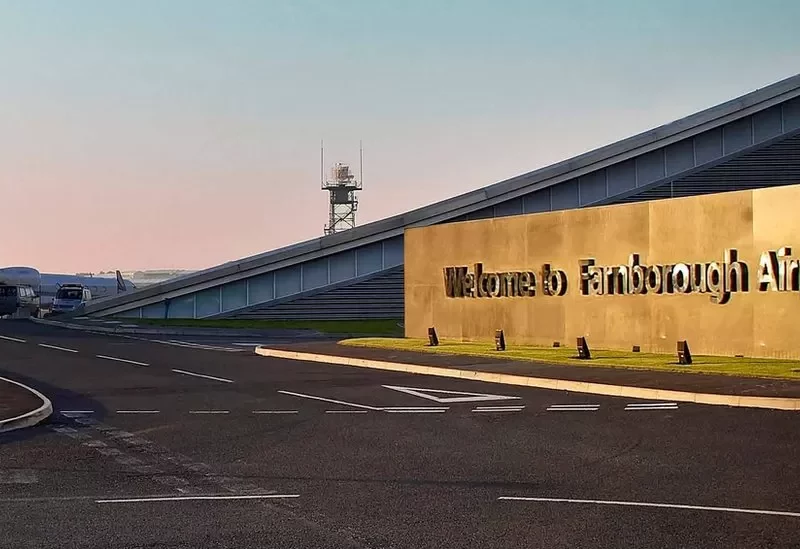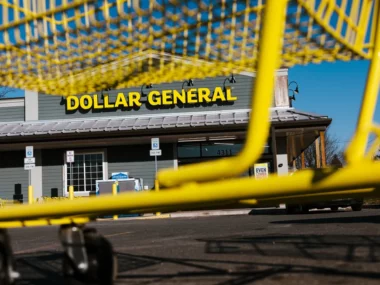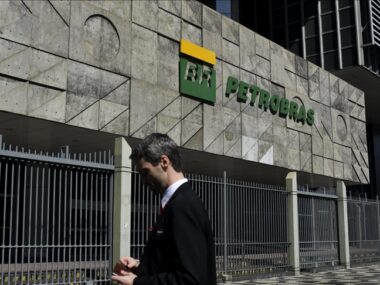An airport has stated that its intention to raise the cap on flight operations will lead to the creation of over 1,000 jobs and contribute more than £200 million to the United Kingdom’s economy.
Farnborough Airport has announced its plan to file a planning application in November, seeking approval to increase its annual flight limit from 50,000 to 70,000 flights.
The Hampshire-based airport, primarily catering to private jets, argues that this adjustment is necessary to meet the growing demand for business travel. On the other hand, environmental activists concerned about climate change argue that this expansion would have detrimental effects on the environment.

Supporters of Extinction Rebellion were present at the airport’s inaugural public consultation event.
Protesters affiliated with Extinction Rebellion unveiled a banner bearing the words “Flying to extinction” during an event marking the commencement of the airport’s public consultation, which took place on Wednesday.
Previously, the aviation advocacy group Safe Landing had expressed the view that “polluting private jets catering to a handful of wealthy super-emitters” should be restricted.
During an interview with the BBC, Simon Geere, the CEO of the airport, emphasized the need to strike a balance between the environmental repercussions of expansion and the economic advantages. He stated, “A majority of Farnborough’s users are involved in trips of significant economic importance, often of an essential nature. Business aviation plays a crucial role in supporting the UK’s economic interests and attracting foreign investments. The demand for these services is increasing at a rate of slightly over 4% annually.”

The airport is seeking to raise its yearly limit on flights by a substantial 40%.
If its proposals receive approval, Farnborough Airport has projected a net benefit of 1,150 jobs and a boost of £240 million for the UK economy by the year 2040.
Simon Geere, the airport’s CEO, expressed the goal of achieving net-zero emissions by 2030 and aspired to become the first airport to exclusively use sustainable aviation fuel (SAF). He also noted that any increased noise resulting from flight operations would be addressed through technological advancements and would remain within the limits established by Rushmoor Borough Council.
Furthermore, the airport is considering doubling its annual flight cap on weekends from 8,900 to 18,900 and extending its operational hours from 07:00 to 21:00, as opposed to the current 08:00 to 20:00 timeframe.











